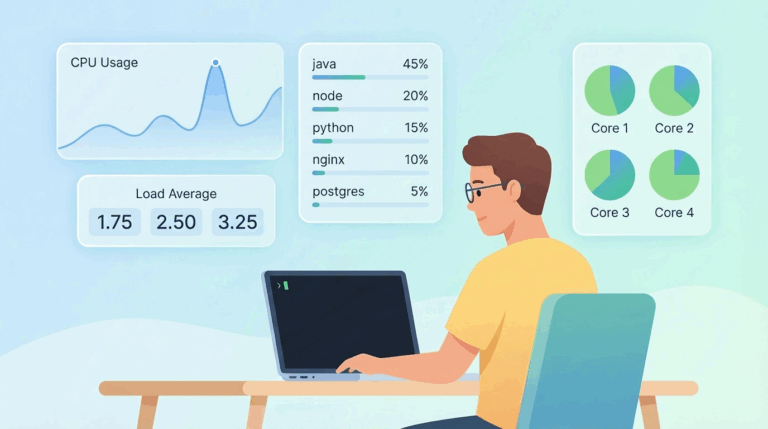There is no port number associated with ICMP packets. ICMP uses types and codes. The type and code combination identifies the specific message being received. The network software itself interprets all ICMP messages.
Today we are going to show you if ICMP has a port number with an example.
- What does ICMP Stand for?
- What is the ICMP Port number?
- Capture ICMP Packet with Tcpdump Command
- ICMP Packet
- ICMP Type
Table of Contents
What does ICMP Stand for?
ICMP stands for Internet Control Message Protocol. The primary purpose of ICMP is for error reporting A good example is the “ping” utility which uses an ICMP request and ICMP reply message. When a certain host is unreachable, ICMP might send an error message to the source. We will use ping command in our example.
What is the ICMP Port number?
ICMP port was not designed by default. The purpose of ICMP was to communicate messages between network layers. It doesn’t need port info to direct messages between applications. ICMP uses types and codes to identify the message being received.
We will use this example to demonstrate it. Let’s send an ICMP packet with ping command like below.
$ ping google.com
PING google.com (172.217.25.14): 56 data bytes
64 bytes from 172.217.25.14: icmp_seq=0 ttl=111 time=49.412 ms
Capture ICMP Packet with Tcpdump Command
At the same time, we can capture packets with the following tcpdump command. Here are more details about how to capture ICMP packets with tcpdump.
# tcpdump -i utun1 -vvvv icmp -A -X -c 1 and dst google.com
tcpdump: listening on utun1, link-type NULL (BSD loopback), capture size 262144 bytes
18:00:56.548635 IP (tos 0x0, ttl 64, id 35202, offset 0, flags [none], proto ICMP (1), length 84)
10.79.101.91 > hkg07s24-in-f14.1e100.net: ICMP echo request, id 51536, seq 0, length 64
0x0000: 4500 0054 8982 0000 4001 bb95 0a4f 655b E..T….@….Oe[
0x0010: acd9 190e 0800 ecfc c950 0000 602b 97d8 ………P..`+..
0x0020: 0008 5ea3 0809 0a0b 0c0d 0e0f 1011 1213 ..^………….
0x0030: 1415 1617 1819 1a1b 1c1d 1e1f 2021 2223 ………….!”#
0x0040: 2425 2627 2829 2a2b 2c2d 2e2f 3031 3233 $%&'()*+,-./0123
0x0050: 3435 3637 4567
1 packet captured
ICMP Packet
Next, we can copy this packet to this online packet analysis tool to decode.
45 00 00 54 89 82 00 00 40 01 BB 95 0A 4F 65 5B AC D9 19 0E 08 00 EC FC C9 50 00 00 60 2B 97 D8 00 08 5E A3 08 09 0A 0B 0C 0D 0E 0F 10 11 12 13 14 15 16 17 18 19 1A 1B 1C 1D 1E 1F 20 21 22 23 24 25 26 27 28 29 2A 2B 2C 2D 2E 2F 30 31 32 33 34 35 36 37
See also: Mastering the Linux Command Line — Your Complete Free Training Guide
From the following chart, we can see that there are two protocols in this packet (IPv4 and ICMP). From the ICMP part, there is no port number.

Conclusion: ICMP doesn’t have port numbers by design.
ICMP Type
ICMP type is the first 8 bits in the ICMP message header. It provides a brief explanation of what the message is for so the receiving network device knows why it is getting the message and how to treat it. ICMP does have some types. From the above example, we can see that the type for that packet is 8 which means this is an Echo request.
Here are common ICMP types :
- 0 Echo Reply
- 3 Destination Unreachable
- 4 Source Quench
- 5 Redirect
- 8 Echo
- 11 Time Exceeded
ICMP doesn’t have a source or destination port number because it’s not a transport layer protocol like TCP and UDP. ICMP is part of the networking layer and is encapsulated by IP. ICMP is assigned Protocol Number 1 in the IP suite according to IANA.org.
Related:
Exploring ICMP Protocol with Examples
Understanding Ping Command and ICMP with Examples
Exploring ICMP Port Number with Example
Capture ICMP Packets With Tcpdump



